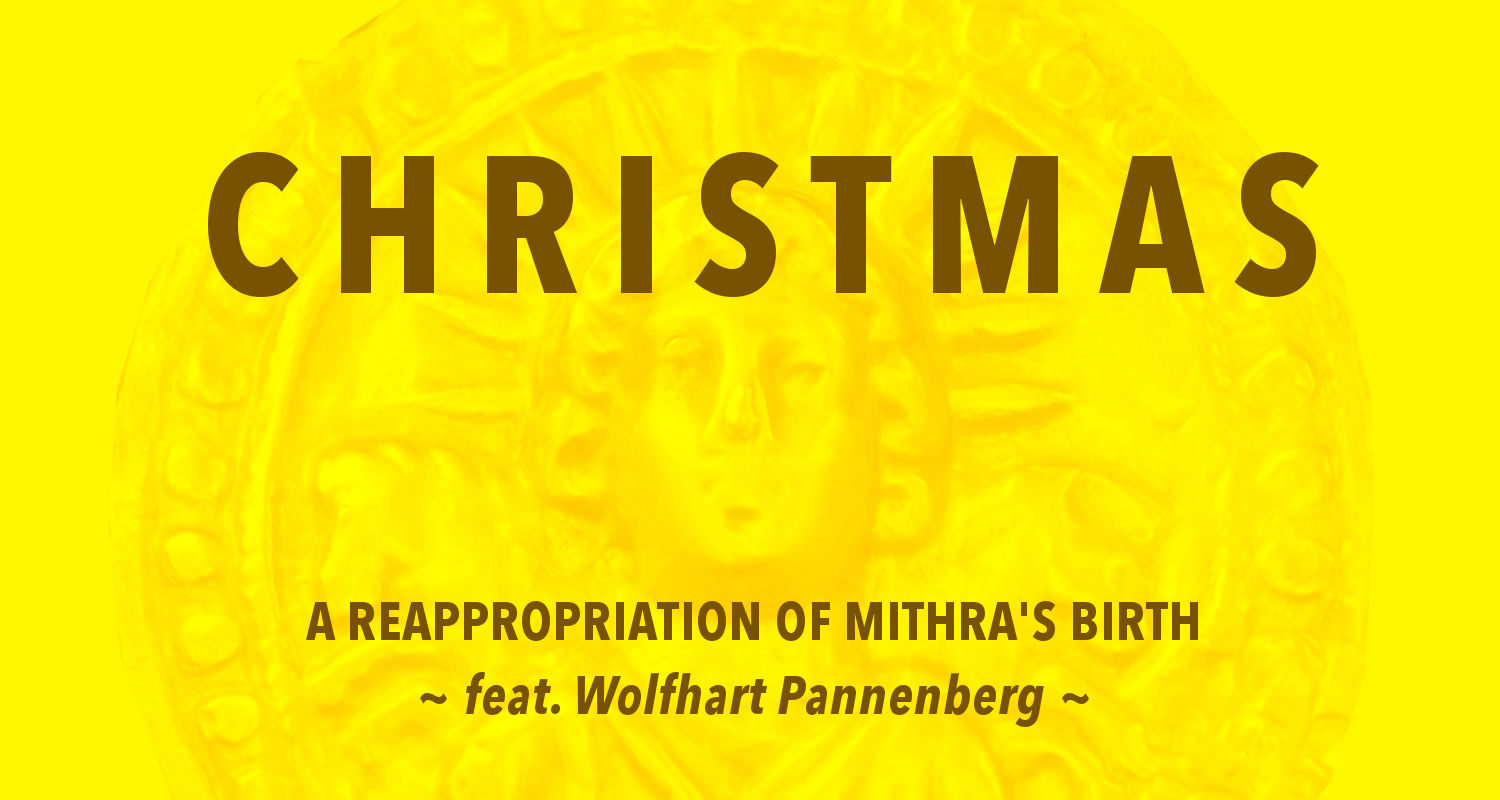
In Wolfhart Pannenberg's essay "Myth in the Biblical and Christian tradition", he explains that Christianity has reappropriated pagan and Jewish myths throughout history in order to demythologize them. Many evangelicals today try to prove that Jesus was born on December 25th, and deny that Christmas has any pagan origin or identification with the winter solstice pagan feasts. On the contrary, Pannenberg argues that Christmas is a deliberate commandeering of the pagan winter solstice festival Sol Invictus, that celebrated the birth of Mithra, the unconquered sun god worshiped in mystery religions throughout the Roman empire. As Christians completed with sun god worship, they chose to celebrate the birth of Jesus, in place of the birth of Mithra on December 25th, which was the winter solstice according to the Julian calendar. After all, Jesus was the greater Mithra, and the true light that was coming into the world, so it was appropriate to celebrate Jesus with similar light metaphors. Pannenberg argues that pagan myths like Mithra cult represent ready made cloaks that were applied to Jesus as part of demythologizing Pagan and Jewish myths. Christianity did not have a traditional day for celebrating the birth of Jesus until the fourth century, when it assumed December 25th from Mithra.
The same evangelicals I mentioned continue this same synchronistic praxis when they celebrate fall parties on halloween or thanksgiving, or have special services to celebrate memorial day or independence days today. Ultimately the goal in reappropriating the winter solstice festival was not to synchronize with mystery religions, but to demythologize those pagan myths that competed with Christianity.
Wolfhart Pannenberg ends his essay "Myth in the Biblical and Christian tradition" (available in The Idea of God and Human Freedom) with this commentary on the origin of Christmas:
The expression of this is the liturgical consequence of the idea of the correspondence between Christ and the sun which has a formative influence on the Christian festival calendar. This can perhaps most clearly be seen in the history of the feast of Christmas. This feast, and probably also its older predecessor and doublet as the celebration of the birth of Jesus, the feast of Epiphany on 6 January, is the result solely of the correspondence between Christ and the sun; for there is no question of any historical tradition about the day on which Jesus was born.
After his victory over Palmyra in 272, the Emperor Aurelian instituted in Rome, on the winter solstice, which fell according to the Julian calendar, on 25 December, a feast of the sol invictus, identified with Mithra. It actually took the form of a festival of the birth of this god, in which the solar monotheism which Aurelian had in mind was given concrete expression. The Roman church then adopted this feast as the feast of the birth of Christ.
Thus from one point of view the feast of Christmas, which is found from the middle of the fourth century on, represents Christian competition with the sun worship of the later Empire. On the other hand, the adoption of the fast was only possible because Christ himself was regarded as the true sun, so that the winter solstice seemed appropriate for the celebration of his birth. Thus we read in a Christian treatise attributed to the beginning of the fourth century, in an allusion to the institution by Aurelian of 25 December as the birthday of the unconquered sun:
Yes who is as unconquered as our Lord who threw down death and conquered him? They may call this day the birthday of Sol, but he alone is the Sun of Righteousness of whom the prophet Malachi said: There shall arise to you who fear his name the Sun of Righteousness, and there shall be healing under his wings.
Sources:
1. Wolfhart Pannenberg, The Idea of God and Human Freedom, "Myth in the Biblical and Christian tradition", p77-78
2. Header Image: God of the Unconquered Sun (source: wikipedia).



November 27th, 2020 - 11:52
That verse in Malachi is misinterpreted